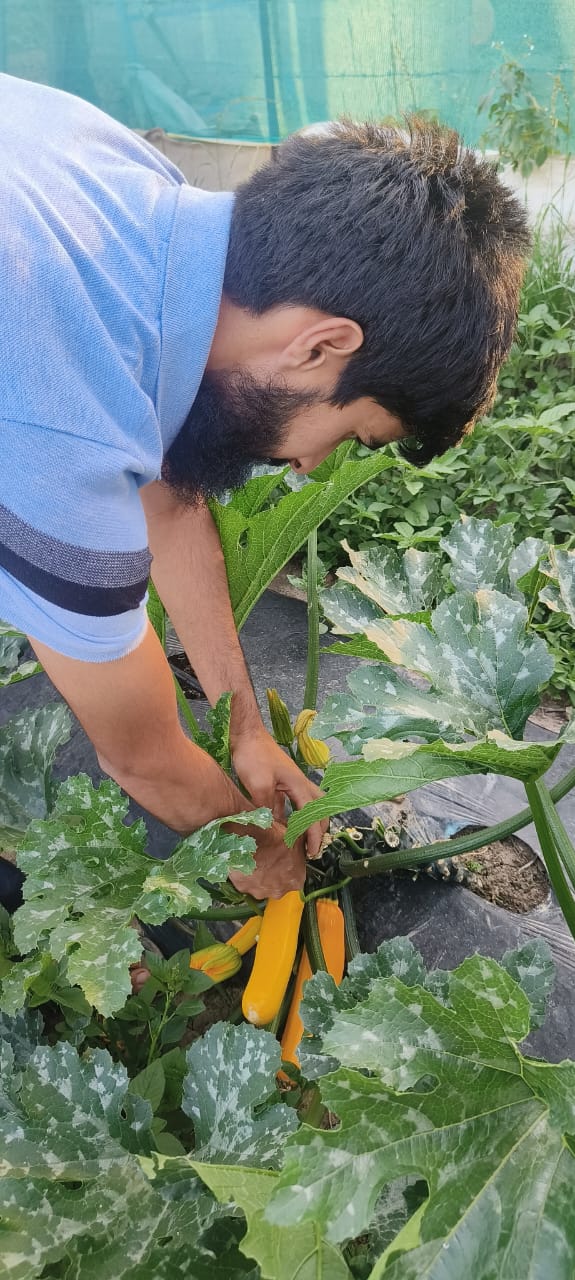Pulwama, June 17: In a heartening tale of innovation and determination, five siblings from Wantrag Ranbipora village in South Kashmir’s Anantnag district have transformed their one-acre ancestral land into a thriving hub of commercial fruit and vegetable cultivation.
Driven by a desire to break away from conventional farming, Ummer Nazir, a science undergraduate, along with his four siblings, took the leap into cultivating high-demand crops like muskmelon, watermelon, and most notably, squash—a relatively new entrant to the region’s agricultural scene.
“Agriculture, especially vegetable cultivation, holds immense potential in Kashmir due to consistent market demand,” Ummer said, “Like most farmers here, we initially focused on cucumber, muskmelon, and watermelon. But in March 2025, we introduced two varieties of squash—yellow and green.”
He explained that yellow squash is more in demand, though both varieties offer excellent taste. “The plants start bearing fruit within 45 days, and we send fresh squash to the market every three days, selling each unit for Rs 40 to Rs 60,” he said. The fruit, he added, is versatile—young ones are consumed as salads while the mature ones are cooked as vegetables. Mohsin Nazir, Ummer’s brother and a business administration student at IUST Awantipora, revealed that they initially planned to convert the land into a high-density apple orchard. “But we wished to do something different. After extensive online research, we decided to grow commercial fruits and vegetables,” he said.
“Farming not only provides a livelihood but also brings deep satisfaction. Every day presents a new learning opportunity,” Mohsin added, “We hope our journey inspires other educated youth to explore agriculture as a viable career.” The siblings also credit the Holistic Agriculture Development Programme (HADP) of the Agriculture Production and Farmers Welfare Department, Kashmir, for their success. The scheme facilitated a drip irrigation system on their farm, boosting productivity.
“Our farm was visited multiple times by the Chief Agriculture Officer of Anantnag, who guided us on pest and disease management,” Ummer said. Chief Agriculture Officer Anantnag, Shahnawaz Ahmad Shah, praised the siblings’ efforts. “We supported them through technical guidance, market linkage, drip irrigation systems, and mulching material. They are role models and a source of inspiration for the farming community,” he said








